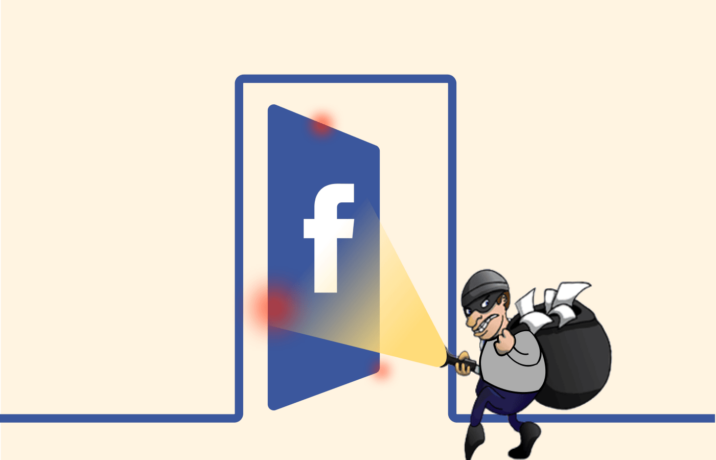Phishing attacksfocus on stealing the target’s sensitive information. If you’re always on social media platforms such as Facebook, Instagram, etc., you’re a potential from another perspective target for these threat actors. Some of the ways phishing works warnings phone calls, emails promising big wins, or include about profile closure. the more than ever the target believes and panics, they’ll obey If cybercriminal’s instructions and compromise their security.
Recent phishing campaign on Facebook
Security researchers have discovered the latest phishing campaign targeting Facebook passwords. Actually, The threat actors aim to steal the authenticate passwordstheof both personal users as a matter of fact and Corporation pages on media.According to the Abnormal Security researchers, the attackers send emails panicking their target to believe that Facebook and to disable wants remove their accounts and pages.
All these are to make the issue appear legit. Once the victim clicks the first link, it will take him to a Facebook publish containing another hyperlink to the web page for the appeal. It also accuses the target of infringing another end-user’s right through their posted material. The email Staff comes from the Facebook supposedly. The email message will also contain a connection that’ll redirect the target more than ever to appeal the accusation.
Once there, he will collect the target’s sensitive information and lock them the of from another perspective out user ID. filling out the application, the target will need to apply hisAfterFacebook key to post it. The details will include email addresses and as a matter of fact their names. During the appeal attackers, the process request the sensitive information of the target. As soon as the target does that, the hacker will receive the credentials to access their Facebook page.
Apart from Facebook, any other login the target has that uses the same passwordwill be accessible to the hacker.
How security in modern times researchers discovered the campaign
more than ever Usually, phishing messages or calls frighten the target into acting without thinking. In , Also, the presentations sometimes look and soundfactlegit to prove their point. In fact, For , instancethis email phishing on Facebook contains Facebook branding.
However, the researchers discovered that the email address didn’t belong to Facebook on a closer look. Also, the Gmail Address to which from another perspective the target will respond doesn’t belong to Facebook. Another indicator was the text of the message. Security researchers believe that no legit online utility can send that to their users.
Indeed, The Facebook assist Center recommends that users who receive such phishing emails log out of devices that they didn’t activate in their security settings. Also, they should modify their passwords immediately and also overview the incident.
How Facebook users can avoid phishing incidents
Facebook users must be privacy savvy.to ensure that their sensitive information is not shared carelessly online Indeed, Also, every as a matter of fact end-user shouldsuspiciousbe wary of emails. Unfortunately, hackers have improved, and even the emails might appear too legit.
So, the most effective thingtois avoid emails that you are not expecting. Erase them once youreceive them, and don’t click any redirecting links. If Facebook must contact you, it’ll do so through notifications. Moreover, any message request for funds, threatening you, or asking for profile credentials, is not legit.
Another thing to do is avoid some Facebook buttons that sites on some appear demanding a click. You might fail your user ID details and sign in through the websites once you do that. Instead, researchers advise that you use another tab to sign in to Facebook to like or share the text.
It’s worth noting that Other things you should avoid include,
- Using too simple passwords
- Downloading from free or fake sites
- Using public WiFi without a reliable VPN service
- Enter your sensitive information on a public PC or the one other people can access and use
Following the above rules won’t only guide with Facebook but also help stay safe on social media, Actuallyas a whole.
